CERN's New Particle Accelerator Promises Window on Big Bang
Published:
25 July 2004 y., Sunday
Scientists probing something as big as the origins of the universe sometimes need equipment to match. At the European nuclear research center CERN in Geneva, they're building the most powerful particle accelerator ever. The Large Hadron Collider, as it's called, is expected be able to recreate the conditions that existed at the time of the Big Bang, when the universe was born. Scientists say they hope the new tool will help them unravel the mysteries of matter and energy, and confirm or demolish existing theories.
Contrary to what its name implies, the Big Bang was not necessarily an explosion. Scientists consider the Big Bang to be more of a marker to note that the universe had a beginning. It is the moment in which the universe, space and time were created. CERN Physicist Richard Jacobsson says scientists do not know why or how the Big Bang occurred. But big particle accelerators such as the Large Hadron Collider help them to understand the process.
When the Large Hadron Collider (LHC) is completed in 2007, the superconducting magnets in the machine will operate at 271 degrees, just above absolute zero. However, Mr. Jacobsson says that the temperature created in the proton-proton collisions will be one billion times hotter than at the center of the sun.
Some 6,500 scientists from more than 80 countries currently collaborate on hundreds of ongoing experiments at CERN. The world's biggest particle physics laboratory is celebrating its 50th anniversary this year.
Šaltinis:
voanews.com
Copying, publishing, announcing any information from the News.lt portal without written permission of News.lt editorial office is prohibited.
The most popular articles

The European Commission announced today the award of three of the six contracts for the procurement of Galileo’s initial operational capability.
more »
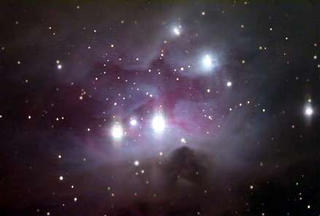 Cosmologists A. Coley from Canada's Dalhousie University and B. Carr from Queen Mary University in London, have published a paper on arXiv, where they suggest that some so-called primordial black holes might have been created in the Big Crunch that came before the Big Bang, which lends support to the theory that the Big Bang was not a single event, but one that occurs over and over again as the universe crunches down to a single point, then blows up again, over and over.
more »
Cosmologists A. Coley from Canada's Dalhousie University and B. Carr from Queen Mary University in London, have published a paper on arXiv, where they suggest that some so-called primordial black holes might have been created in the Big Crunch that came before the Big Bang, which lends support to the theory that the Big Bang was not a single event, but one that occurs over and over again as the universe crunches down to a single point, then blows up again, over and over.
more »
 For mobile phone users, a flat battery or a lost charger are among the frustrations of modern life.
more »
For mobile phone users, a flat battery or a lost charger are among the frustrations of modern life.
more »
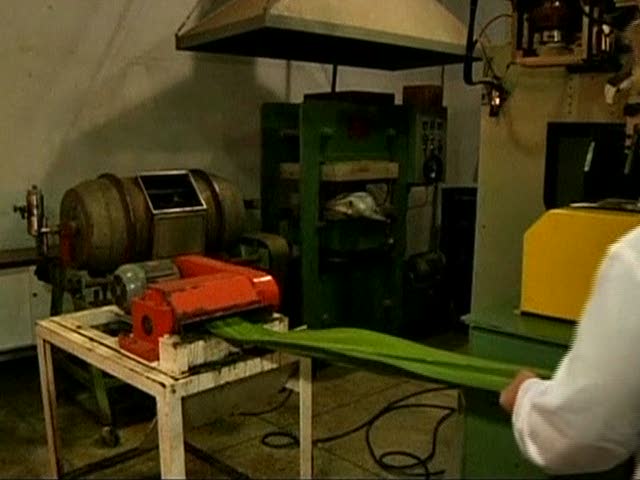 Scientists in Brazil have developed a method of turning pineapples, banana peels and other fibrous plants into plastic. The researchers say the material is strong, lightweight and eco-friendly and will soon replace conventional plastics in auto manufacturing.
more »
Scientists in Brazil have developed a method of turning pineapples, banana peels and other fibrous plants into plastic. The researchers say the material is strong, lightweight and eco-friendly and will soon replace conventional plastics in auto manufacturing.
more »
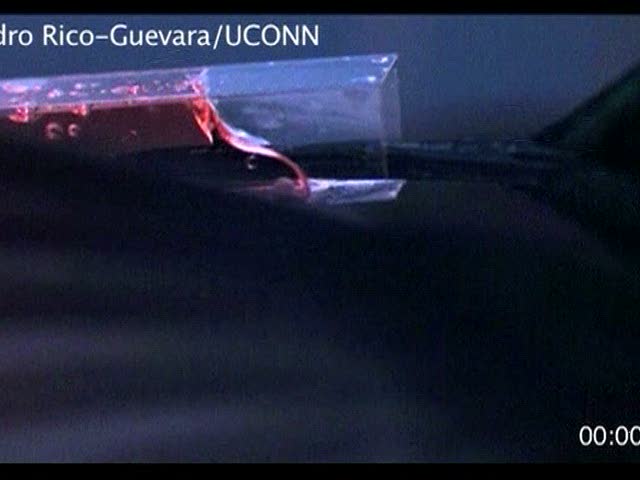 Research released this week has debunked a 180-year-old theory of how hummingbirds gather nectar. Using high speed cameras and some ingenuity, a graduate student at the University of Connecticut slowed down time to get a better look at how the tiny birds eat
more »
Research released this week has debunked a 180-year-old theory of how hummingbirds gather nectar. Using high speed cameras and some ingenuity, a graduate student at the University of Connecticut slowed down time to get a better look at how the tiny birds eat
more »
 A German company has developed a battery-powered electric car capable of driving 450 kilometres on a single charge. By comparison, the Nissan Leaf has a range of 160 kilometres per charge and Chevrolet's Volt, about 70 kilometres.
more »
A German company has developed a battery-powered electric car capable of driving 450 kilometres on a single charge. By comparison, the Nissan Leaf has a range of 160 kilometres per charge and Chevrolet's Volt, about 70 kilometres.
more »
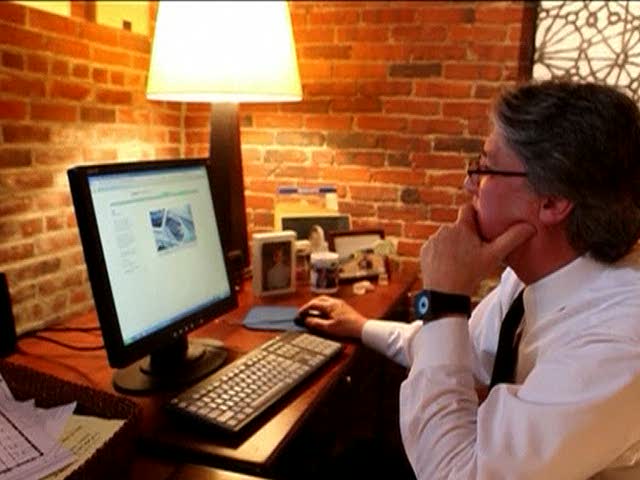 As our planet becomes more crowded, city planners and architects are trying to come up with new ideas for future human habitation. We've seen biospheres and proposals for underground housing, but now one Boston-based architectural firm has come up with a conceptual plan that envisages cities that float.
more »
As our planet becomes more crowded, city planners and architects are trying to come up with new ideas for future human habitation. We've seen biospheres and proposals for underground housing, but now one Boston-based architectural firm has come up with a conceptual plan that envisages cities that float.
more »
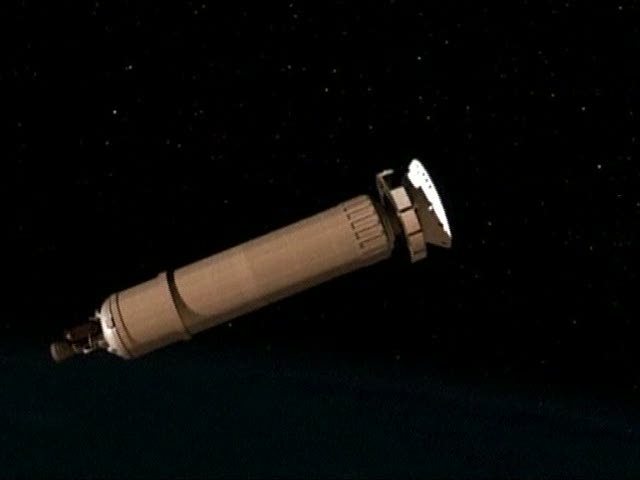 While the US shuttle programme may be winding down, the drive to explore our solar system is as strong as ever. Mars is still the focus for many scientists and excitement is growing about November's scheduled launch of the latest Mars rover, Curiosity, now in its final stages of testing at the Jet Propulsion Laboratory in California.
more »
While the US shuttle programme may be winding down, the drive to explore our solar system is as strong as ever. Mars is still the focus for many scientists and excitement is growing about November's scheduled launch of the latest Mars rover, Curiosity, now in its final stages of testing at the Jet Propulsion Laboratory in California.
more »
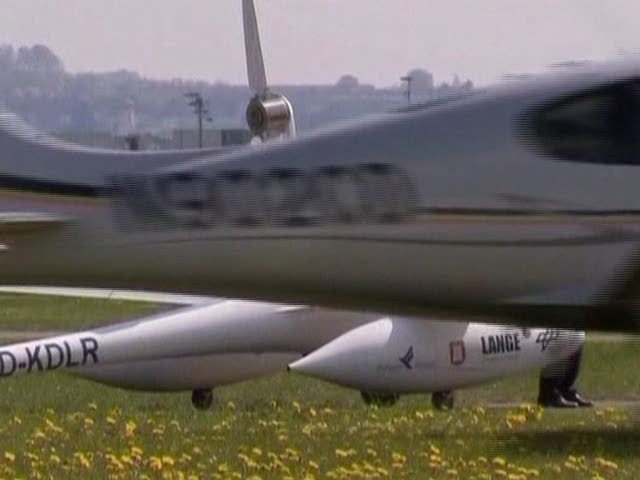 A German company hopes to run the world's first all-electric commercial aircraft business after successful test flights of its prototype aircraft, the Elektra One.
more »
A German company hopes to run the world's first all-electric commercial aircraft business after successful test flights of its prototype aircraft, the Elektra One.
more »
 In the future, the commercial farms could possibly be managed by robots, which would spray, identify and pick produce from plants such as peppers, grapes and apples.
more »
In the future, the commercial farms could possibly be managed by robots, which would spray, identify and pick produce from plants such as peppers, grapes and apples.
more »
 Car engines could soon be fired by lasers instead of spark plugs, researchers say.
more »
Car engines could soon be fired by lasers instead of spark plugs, researchers say.
more »